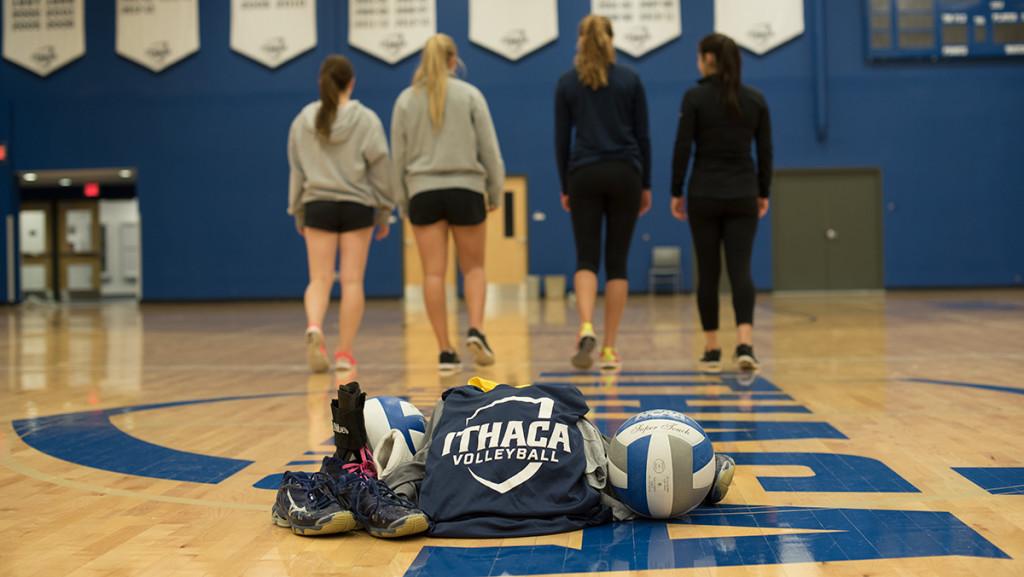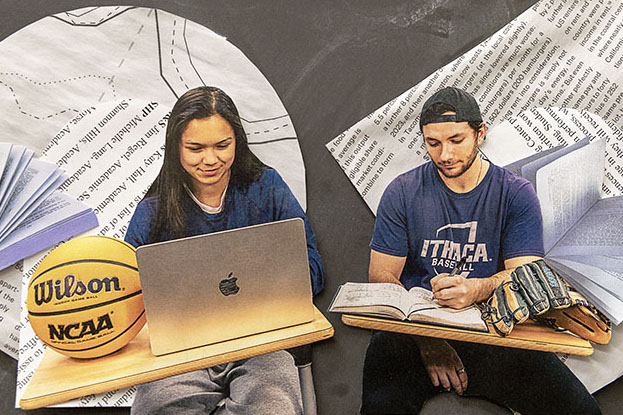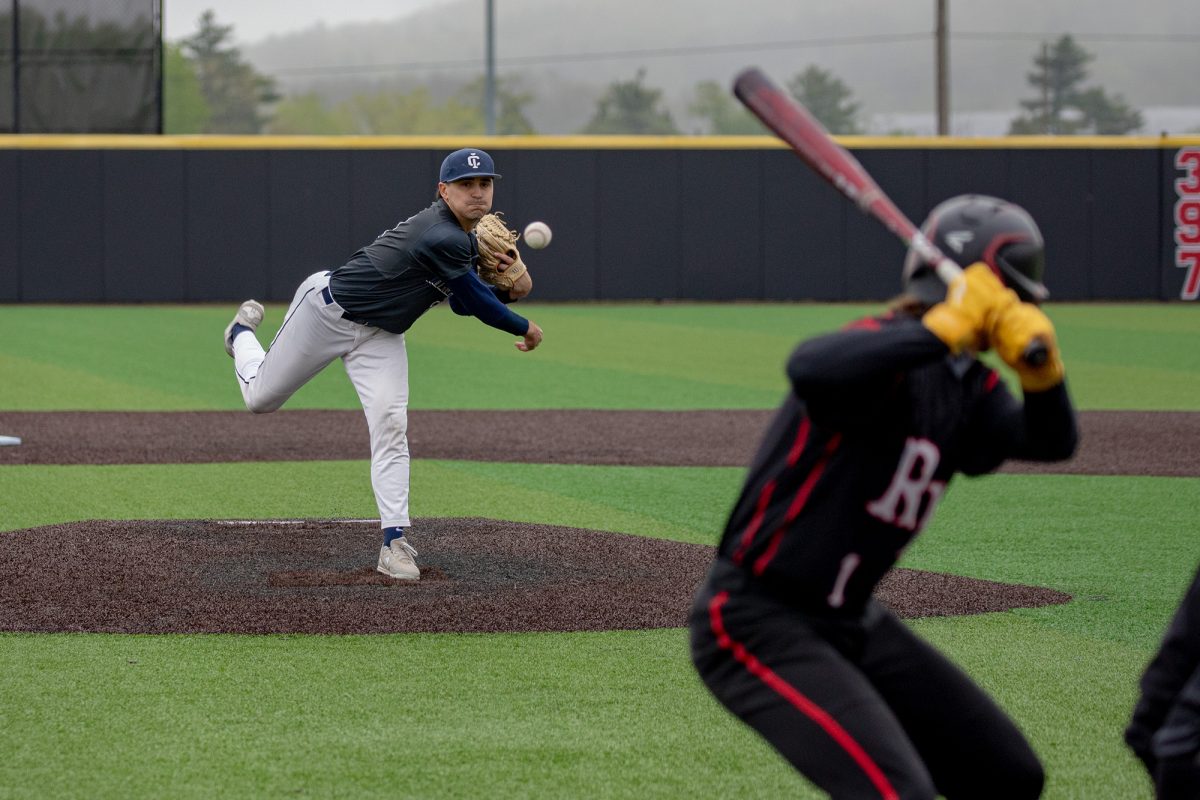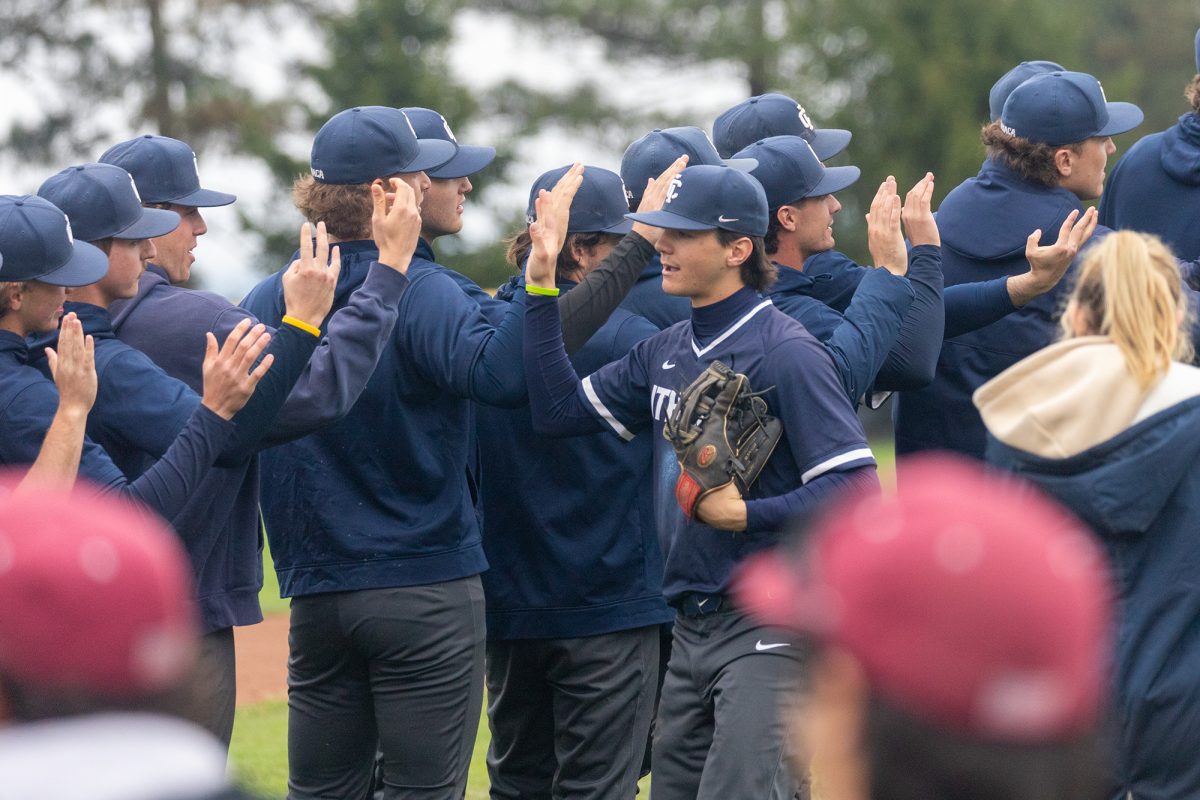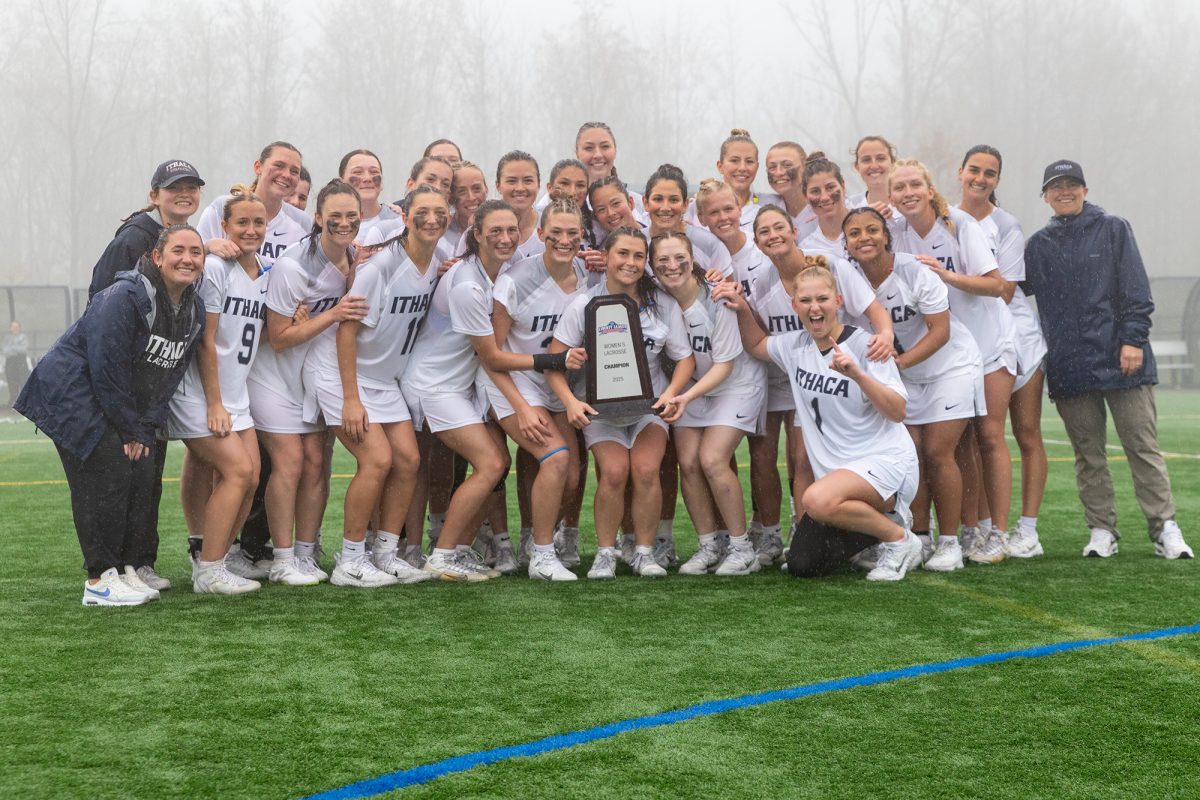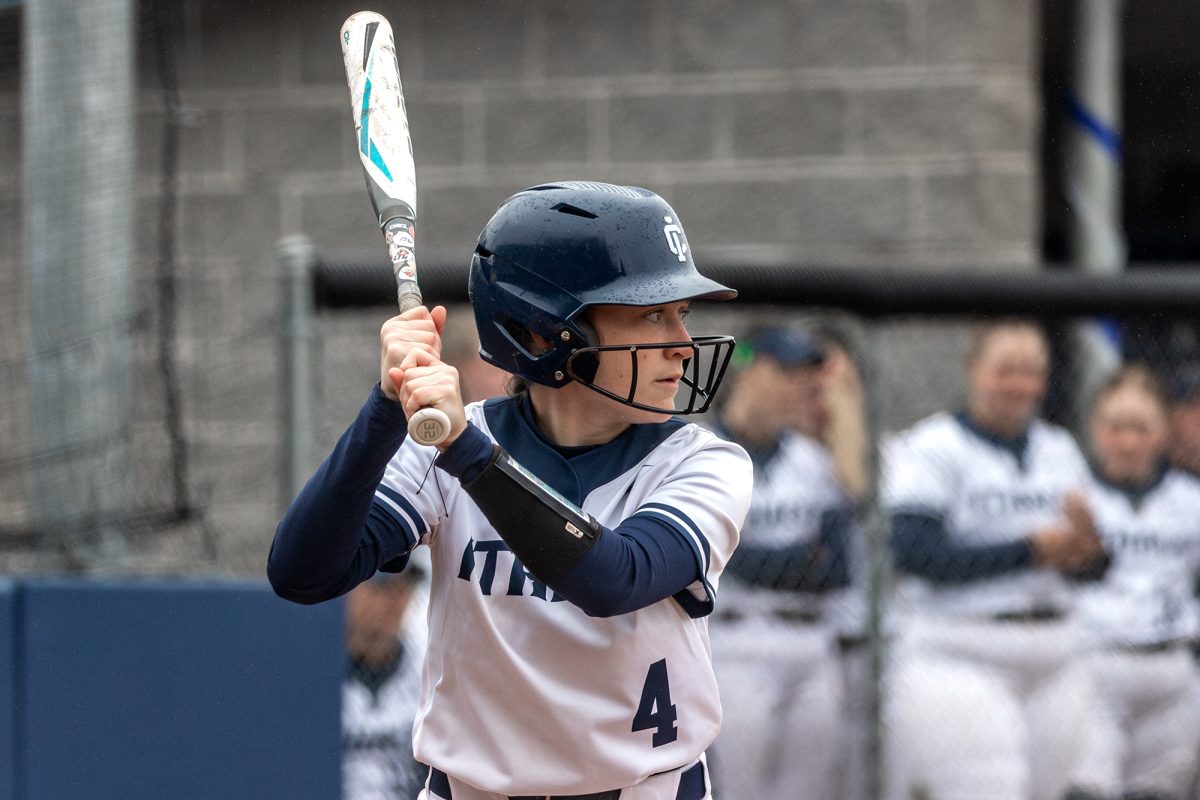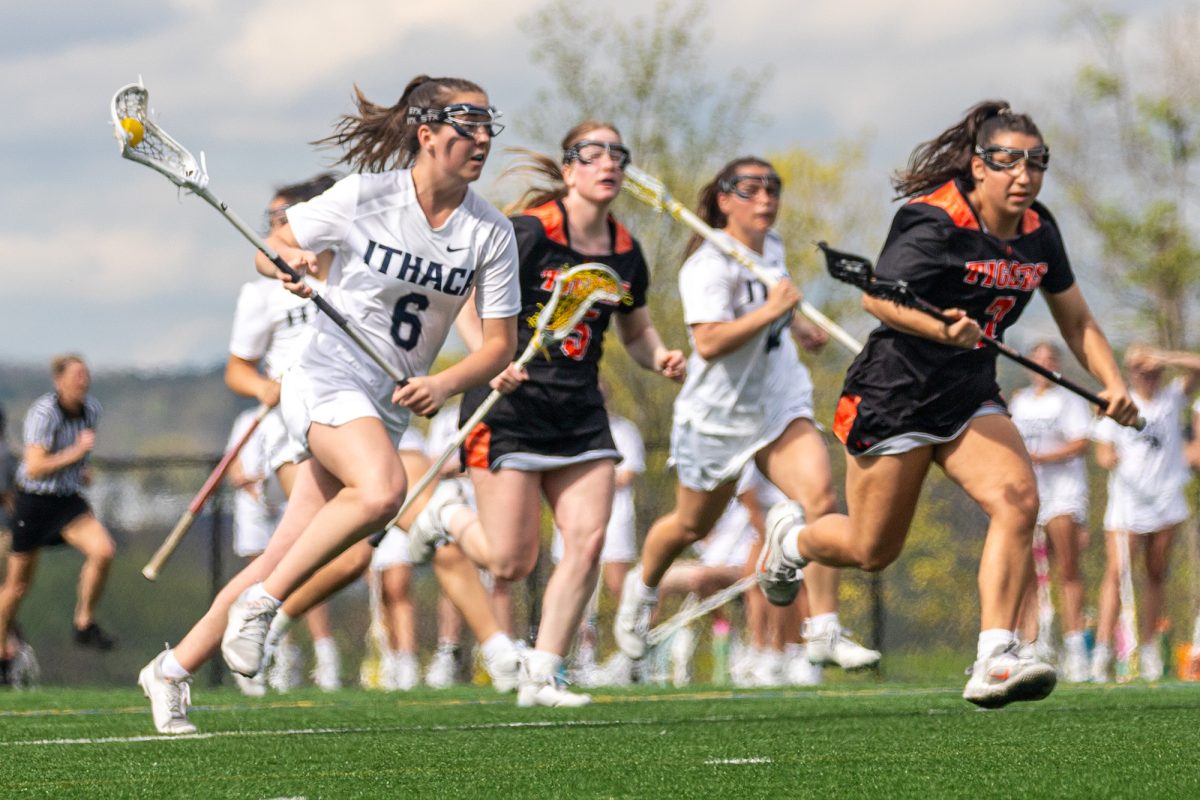The large turnover of student-athletes staying and leaving each year is not uncommon for most college athletic programs. However, for the Ithaca College volleyball team, with head coach Janet Donovan at the helm, more players have gone then remained, due in part to criticisms of her coaching style and what team members describe as her disrespect for her players.
“I can tell you that every single girl I’ve played with, I’ve seen cry because of Janet. Every single one, and most of them on more than one occasion.”
These words were spoken by a 2012 alumna and former student-athlete of the college. A four-year member of the volleyball team, she did not want to be named for the purposes of this article.
Since the team’s preseason in August, seven of last year’s 13 returning players were either cut from the team or made the decision to quit. Rather than being on the court, four of the eight former players — juniors Molly Brown, Myan Idziur, Maggie Mutschler and Siobhan Sorensen — now sit on the bleachers.
Former volleyball players dating back to 2005 have expressed similar feelings about Donovan. At first, many players were reluctant to speak out against their head coach. However, in recent years, student-athletes have brought a number of concerns to the athletics department.
Over the course of two months, The Ithacan investigated and uncovered the nature and extent of Donovan’s behavior. Interviews with 25 people involved with the volleyball team and the college, including five current and 11 former students, coaches, administrators and family members found a pattern stretching over a decade of damage to the volleyball program that has led to the mental strain of several student-athletes.
Donovan declined to comment on any of the content of this article.
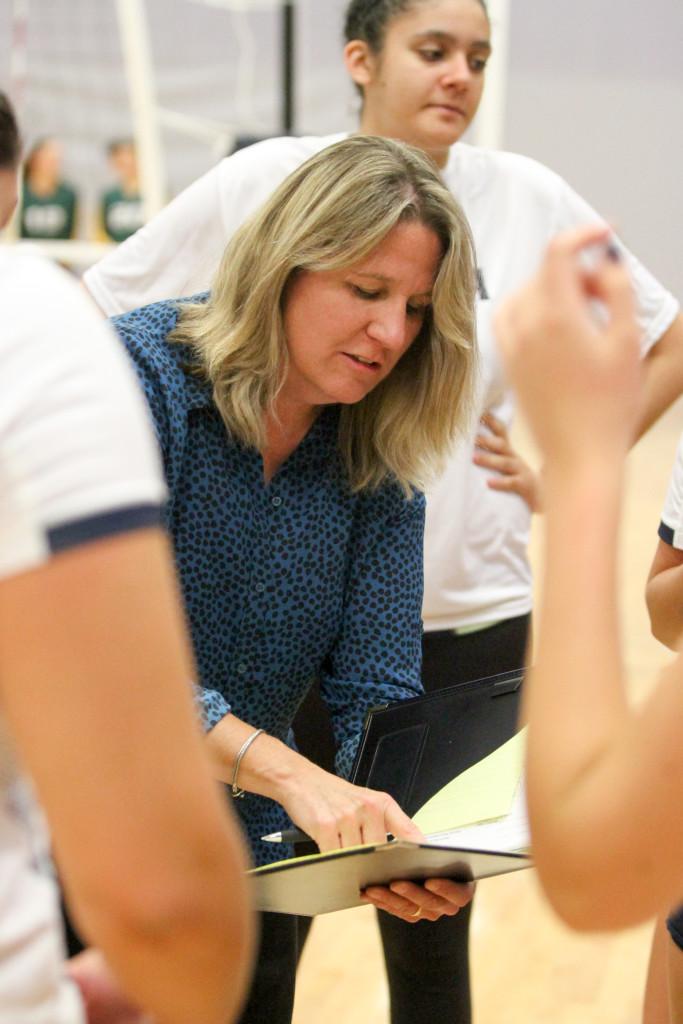
A Youthful Squad and Confusing Cuts
The 2015 team is now underclassman-heavy, composed of five freshmen, five sophomores, one junior and one senior.
However, this young configuration is nothing new to the program.
Over the past six seasons, the college’s volleyball program has seen 38 percent more underclassmen than upperclassmen with an average of nine underclassmen and four upperclassmen per squad.
Comparatively, from 2010–15, the other eight Empire 8 schools saw an average of about 24 percent more underclassmen than upperclassmen per squad.
Although the program has similar player-loss rates to other Division III schools, many believe there is a reason why a significant number of players have left the program, despite the record number of wins under Donovan.
Many of the players who are no longer on the team said they left preseason muddled about how Donovan made her decisions on who would make the team and felt like they were not given adequate reasoning behind the decision of being cut.
Brown said after six practices and three days of tryouts, the players were given an envelope in the locker room that said whether they had made the squad.
Idziur said when she went to Donovan for clarification after she found out she was cut from the team, Donovan would not discuss the details of her decision, which Idziur said she found immature.
“She just said, ‘It’s in the letter,’” Idziur said. “And [I said], ‘What do you mean it’s in the letter?’ And she repeated herself … two more times saying, ‘It’s in the letter.’ And I [said], ‘I don’t understand, can you tell me? I deserve that at this point. I deserve to know what is going through your head.’ … And she didn’t give me anything. At one point, she didn’t even respond to me and just stared at me.”
Assistant coach Derryk Williams said he and Donovan made it clear to players how tryouts were going to be run and how they would determine who made the team. They used a program called Gold Medal Squared, which evaluates players based on statistics. He said Gold Medal Squared is what the national team and Division I programs use to figure out who statistically does the best.
“We went through the tryout process, and then afterwards they received their statistics of where they stood in their position, and we were looking for very multidimensional players, so we kept players in a position that we thought would make us the best team, as well who performed the best during tryouts,” Williams said.
Sophomore Kayla Gromen, one of three captains on the current team, said after tryouts her teammates had to move on from the decisions made by Donovan and tried to stay focused.
“It was a very surprising 12-hour period, but we knew the first day we walked into the gym coming back from the summer,” Gromen said. “We knew throughout the summer that it was going to be a competitive preseason, and obviously we didn’t know the results until we got all of our envelopes.”
Nonetheless, Mutschler said her perception of Donovan before and after the recruiting process was drastically different.
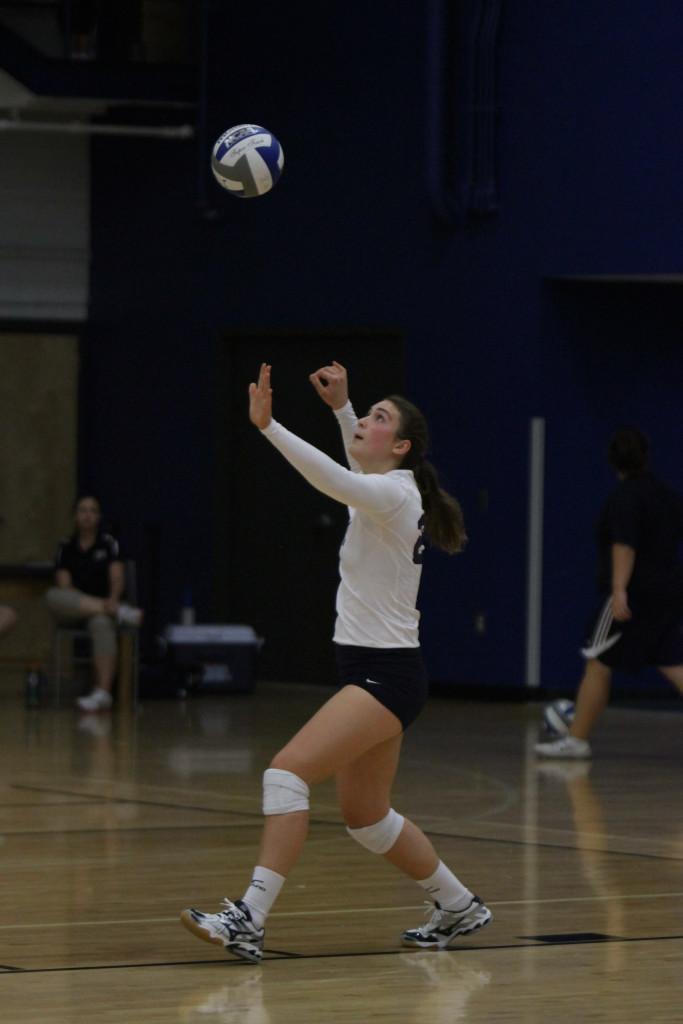
The Summer Letter to Parents
The parents of all members of the 2014 roster received an email from Donovan regarding the upcoming season.
In the email The Ithacan obtained, Donovan outlined specific commitments that she needed from parents for the upcoming season.
Donovan, when referring to how their daughters would be treated, said “we will not physically or mentally abuse her.” At one point Donovan suggested the players might “organize a plot to get me fired.” She even told the parents to tell their daughters “to get back to the tough business of growing up and becoming accountable for the challenges she is lucky enough to have before her.” Donovan also suggested that “if you cannot make this commitment then you need to look at other schools.”
Here is a copy of the full email:
[block]Dear Parents,
Now that your daughter is an Ithaca Bomber, I pledge that we will use all of our resources to give her the opportunity to develop into an outstanding volleyball player, student and citizen. We will not physically or mentally abuse her. We will not run her off to another school when we have the opportunity to recruit someone with more talent. We will treat her the same way we would like our own child to be treated, which means there will be times when she will be challenged, encouraged, and pushed to do things beyond what she believes she is capable. This is my commitment to you.
Here is the commitment I need from you, the parents:
There will be times in your daughter’s collegiate where she may be frustrated, anxious, or angry for any of the following reasons: She may find the expectations more than she anticipated. She may be asked to play a role on the team that is not the one she dreamed of. She may not enjoy competing every day against other athletes as skilled and talented as she is. She may not yet have an appreciation for delayed gratification. She may interpret information as judgment. She may be overwhelmed by a combination of these factors.
If she is, then she is having a normal college experience, which is typical for someone who is moving through adolescence to adulthood. When this happens, there will come a moment when she calls or texts you and wants to do one of the following: leave school and come home, transfer to another school, or organize a plot to get me fired.
I need you to make the commitment that when your daughter calls you will listen, you will communicate your love for her, and then you will tell her to get back to the tough business of growing up and becoming accountable for the challenges she is lucky enough to have before her. If you cannot make this commitment then you need to look at other schools. If you can, fasten your seatbelt and welcome aboard.
Janet Donovan[/block]
Susan Bassett, director of intercollegiate athletics, said she was aware of the letter and had a conversation with Donovan regarding the matter but was not allowed to talk about the details of that conversation due to the privacy surrounding personnel issues.
“I will not and cannot speak about anything that relates to what I do or don’t say to anyone of the staff that I supervise,” Bassett said.
A parent of one of the former players said she was surprised when she received the email from Donovan and was taken aback by the fact that Donovan suggested leaving for another school.
“The thing that stood out in my mind … from well over a year ago now, because of the numerous suggestions in the email to considering transferring to another school. … As a parent, just sending your child off as a freshman to a school with a $50,000 price tag, and they’re not even there a week yet, and to have a coach to suggest that this might not be the right school for your child … I found that really offensive.”
Less than a week later, Bassett said, Donovan issued an apology after complaints from other parents.
Despite these and other concerns, Donovan does have supporters among the players. Senior captain Dylan Gawinski-Stern, who has played on the team since she was a freshman, said Donovan is always trying to get better as a coach from year to year.
“For me being here for four years, there obviously have been things that have not been what we want from previous years,” she said. “But I have seen a lot of change and a lot of progression of our coach, and this one seems to be the best one we have had so far, and I think that has a lot to do with how every person grows each year.”
Gromen and sophomore captain Joelle Goldstein agreed with the sentiments Gawinski-Stern mentioned about their current coach. Goldstein said she’s been lucky and fortunate to have a good relationship with Donovan.
“I personally have never encountered any problems with her,” Goldstein said. “I mean, she’s the reason I found out about Ithaca, and a large reason of why I came to Ithaca. She’s very supportive in the fact that she never wants to push us to the length of where we’re going to be injured.”
Many of the other current players on the volleyball team declined to comment.
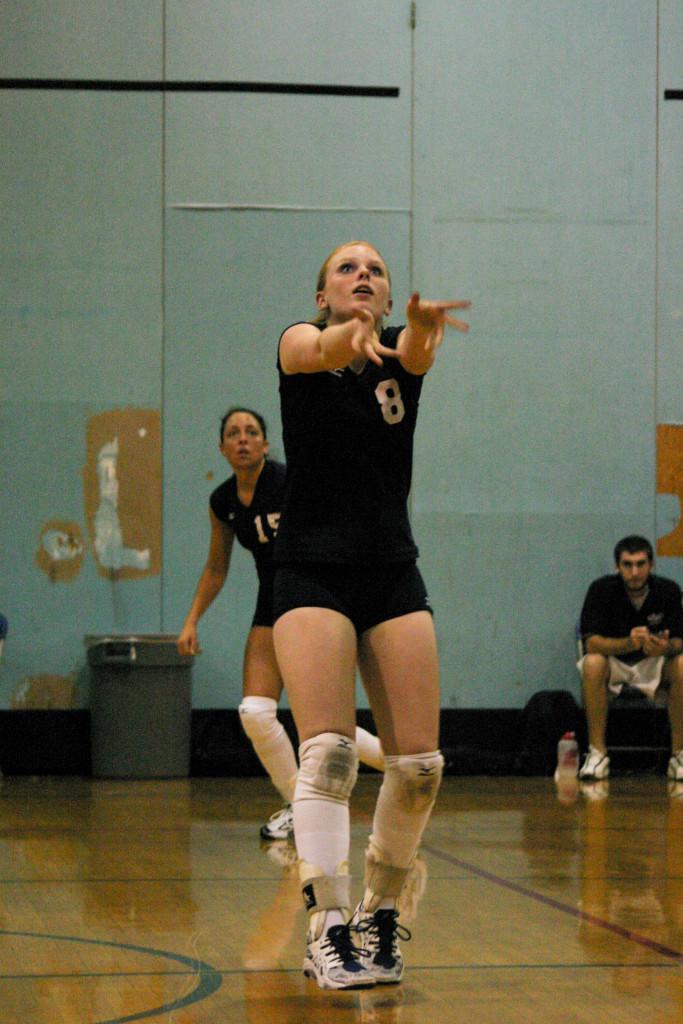
Respect
Mutschler quit the team Sept. 4.
Goldstein said it was tough for the players to adjust after Mutschler quit, and with a match against SUNY Brockport on Sept. 5, they needed to turn the negative energy into positive energy.
“I played for [Mutschler] because she wasn’t there,” Goldstein said. “There are so many other girls who would kill to be in our spots right now, so if you keep that mentality throughout the season, you just play your hardest and know that, then we’ll be fine.”
Mutschler said there was one practice in 2014 that was supposed to be a lighter practice for the team. However, she said within the first 30 minutes, one of her teammates was on the verge of crying. Mutschler said she went to comfort her teammate, and at the end of practice, Donovan came up to Mutschler in the locker room to speak to her.
“She looked at me and said, ‘Haven’t I given you everything you wanted,’ meaning playing time, because I did play a lot,” Mutschler said. “I can’t say that I didn’t get playing time, and I said yes. She said, ‘Just remember that, finishing up the season, remember I gave you everything you wanted.’ And that was it. I brought that to the athletic department, and I told them about that because it made me extremely uncomfortable, and I felt like I was pitted against my teammates for something that wasn’t fair to them.”
Syline Kim ’14, who was a two-year captain and an office assistant for Donovan for three years, said she and her teammates faced similar problems and met with administration to try to rectify the problem.
Kim said while she did not personally have many altercations with her like her teammates, at times she did feel like her playing ability wasn’t taken seriously.
“I saw other people take it harder than I did, definitely,” Kim said. “I felt like if you messed up, like me personally — if I made one mistake — I feel like I would be taken out after one specific thing, while other people got a lot of chances. I did see if someone shanked a pass, they’d be taken out immediately and not be given a chance to redeem themselves.”
Abbie Hutchinson ’15 said she recalled one instance in which the team was playing its last game — a playoff game — and by the end of the contest, there were only underclassmen on the court.
“[The seniors] had worked their butts off all season, and they competed in practices and earned their spot on the floor to start that game, but by midway through to close to the end, their last game, we’re down by quite a bit, so we can’t really come back, and they weren’t given the respect to be able to play, and that was frustrating to see and experience as a junior,” Hutchinson said.
Many former players shared these same experiences across the years.
Casey Buss ’08 played on the volleyball team for her first two years. In 2006 during her junior year, she was cut from the squad during preseason. She said she had a feeling she would be cut the first day she showed up for tryouts based on the attitude Donovan displayed toward her during tryouts.
“I had an inkling,” Buss said. “Knowing how the first two years — primarily how my sophomore year went and the relationship I had with Janet — I had a feeling I was going to be on the chopping block. And I could tell during tryouts that she did not want me on the team. It was very clear.”
Buss said the way she and other members of the team were treated by Donovan was not professional and that by speaking up, it could have cost her a spot on the team.
“I believe it was less to do with my athletic ability and had more to do with my stance on her coaching and how I had respectfully challenged her in the past, and she did not feel that was appropriate,” she said.
The problems she and her teammates have encountered with Donovan made them uncomfortable at times, Buss said.
“If we had an off weekend from a tournament or we didn’t play as well as we should have, instead of going to practice and reviewing tapes, we would have something called a circle talk, which were, in my mind, incredibly and emotionally damaging for many of the women on the team,” she said.
Buss said before the team would begin practice, they would sit in a circle on the gym floor of the Hill Center and be forced to share personal reasons for their bad performances. Another former player cited family problems and eating disorders as personal reasons.
“I remember I stood up and said at one point, ‘This is not right, we should be studying the other teams … not sitting in a circle and crying. That’s not what we should be doing,’” Buss said. “And Janet didn’t like that. When she would look at me or another woman and say, ‘If you’re not crying, you’re doing something wrong,’ I think that’s incredibly inappropriate.”
Buss also said she recalled an instance where the team was split into two separate groups: the starters and the role players. The starters were sent to the counseling center to discuss how they could do better as a team, and the role players were forced to practice how to stand for the pledge of allegiance.
“It was very damaging. It made the girls that had to participate in that pledge of allegiance activity feel awful,” Buss said. “It was not something any athlete should be forced to do and feel like you weren’t good enough.”
Six other alumnae also spoke of the circle talks.
Kate Thoene ‘12, a former member of the team who played on the team all four years, shared similar experiences and said the experiences under Donovan were undesirable.
“She is a very manipulative person. She’s very inconsistent in her coaching style, which makes it really hard for a team to grow. … She likes to make examples out of people. It was never knowing what was going to happen [with Donovan].”
Ryan Baker ’03, a former student assistant coach under Donovan, said working under Donovan was one of the best experiences in his career and cites her as a mentor to him. Baker is now the head volleyball coach at Colgate University. He also said he witnessed no problems during his time and never had a player speak to Donovan with fear.
“It sounds like you have some unhappy players, former players, who to me are on a little bit of a witch hunt,” Baker said. “I think you see that at all levels and all institutions where people are unhappy, they’re finding a place to air their unhappiness and grievances. It’s too bad, but that comes with the territory working in athletics.”
Mutschler and other teammates began to bring their complaints about Donovan to the athletics department in 2014 after instances like this had started to make many of the players feel uncomfortable, she said.
Sorensen said Michelle Manning, associate director of intercollegiate athletics, was at the majority of the team’s practices to observe the team because of issues that were brought to her during the 2013 season.
Bassett and Manning also had individual meetings with some of the players, and Sorensen said the players went into the meetings with a list of examples of uncomfortable encounters they had with Donovan.
“They had a meeting with us at the start of second semester to tell us that they had decided that Janet would remain as the head coach,” Sorensen said. “As soon as I heard those words, I broke down. And I think that should have been a big sign that I do not feel comfortable with Janet Donovan as my head coach.”
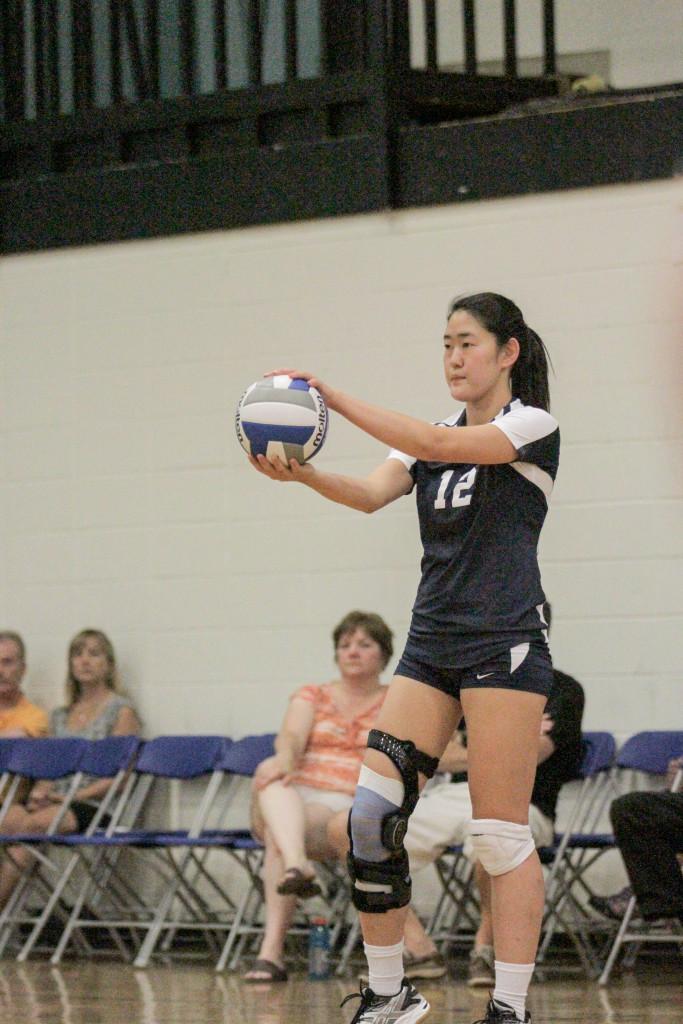
New Rules and Administration Involvement
Following the decision in 2014, rules were put into place prohibiting Donovan from having one-on-one meetings with players. However, Mutschler said the rule was not enforced.
“My first day being on the team, I had a meeting alone with Janet. My first day,” Mutschler said. “We were promised that she would be held accountable. I can say from my week or two being on the team, no one was holding her accountable.”
Since she was hired in 2013, Bassett said, the athletics department holds all coaches accountable through the establishment of annual goals and action plans. She said she reviews the progress of these plans throughout the year and during each coach’s annual performance evaluation. The performance evaluations include feedback from the coaches, evaluations completed by student-athletes and observations of practices and competitions by her and other athletic administrators. She mentioned the college is in its second year of this phase.
“From all of that information, a variety of things happen,” Bassett said. “A variety of conversations happen about strengths and opportunities to improve, and those are things that I and some of my administrative staff all have responsibility to embark upon. I take my role and my responsibility to safeguard student experience and support the mission of Ithaca College as an academic institution very seriously. There are a variety of things that we’re working on, and there is a lot of progress that has been made, and there are in the whole enterprise, I’m sure, areas for where we can get better. And that’s what we’re focused on doing.”
Mike Lindberg, the director of athletics and physical education at Wells College, also declined to comment. Lindberg was the associate director of intercollegiate athletics at Ithaca College from 1998–2014, during most of Donovan’s tenure.
Hutchinson, who quit the team her junior year, said Manning randomly selected players from each class based on an online questionnaire to discuss their experiences with Donovan as a head coach. Hutchinson also said she recalls during her freshman year seniors asked for written responses from the group of players to show the administration the number of problems that took place. None of the freshmen who Hutchinson came in with remained on the team all four years.
“They presented to them our general feeling about the coaching situation and how it affected everyone and how we were sort of uncomfortable with it, and I think that was around the time at which the AD was switching, so there was some change going on anyway, but it was formally presented at multiple points in fact,” Hutchinson said.
Despite the fact Kim played all four years, she said she did have thoughts of leaving the team, but ultimately her passion for the sport outweighed the problems that occurred.
“I think freshman, sophomore year you play for the sport and the hope to get on that court to please the coach because being that young, she gives you more attention and more praise when you do make mistakes, but by junior, senior year once you do make that mistake, you’re criticized, and as a player, that’s the hardest thing is to be always criticized by the coach, and maybe she would bring you up a little bit, but then she would push you right back down,” Kim said.
Thoene also said it is inexcusable for the athletics department to have a repeated history of ignoring the problem.
“To me, for an athletic department to read those evaluations and do nothing about it is pretty astounding.”
Buss agreed with sentiments of past and present players and said she hopes for a change.
“At the end of the day, this is about a student-athlete’s experience on a collegiate volleyball team and what they’re subjected to because of the mismanagement of a coaching staff,” Buss said.
Brown said it is unfortunate to see the number of players who have lost their passion for the game due to Donovan’s disrespect.
“I think a lot of it is we’ve all played this sport since we were in sixth, fifth grade, some later, some earlier. It’s part of our lives,” Brown said. “A lot of people are not willing to give that up just because someone in their life is hurting them emotionally. It’s a lot to give up. It’s a lot of passion. It’s not taken lightly. … It’s just a shame to see that passion taken away.”
Mutschler said she ultimately decided to leave the team because she could not handle going to practices each day knowing how her former teammates were treated.
“I had to stay true to my conscience because at the end of the day, that’s what it was,” Mutschler said. “I couldn’t deal with knowing everything that’s happened. … I’m so proud of all the girls that are still there.”
The original story ran with “a member of the team who graduated in 2012.” However, following publication, it is now changed to Kate Theone ’12, who later revoked her anonymity. In addition, a phrase was later changed to clarify that another former player cited family problems and eating disorders as personal reasons.


